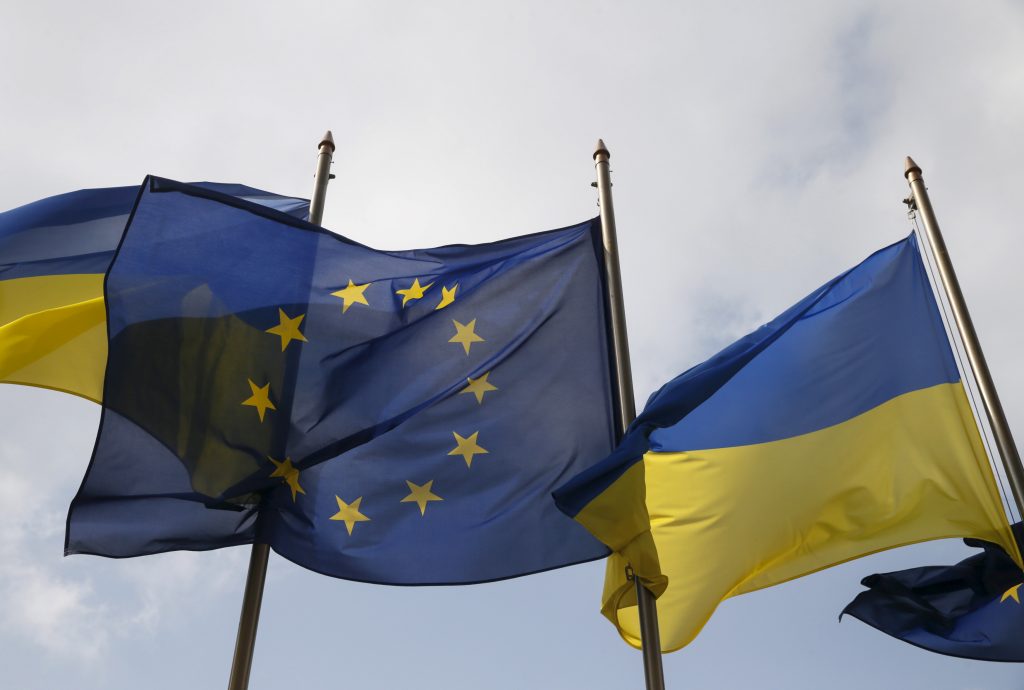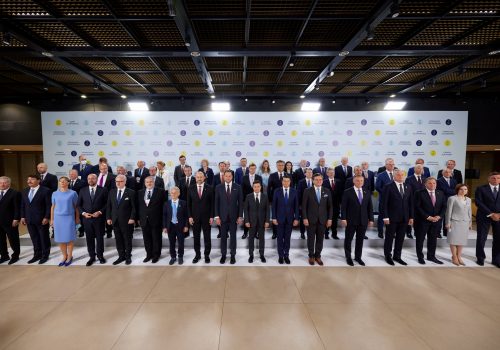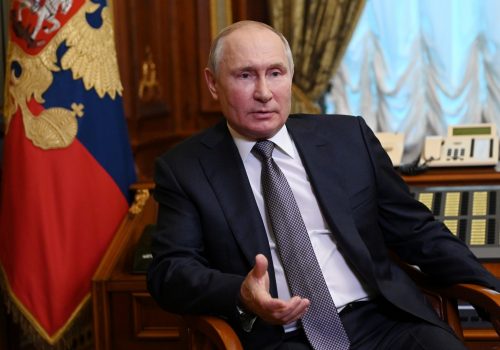In late September, the European Court of Auditors issued a damning report criticizing the ineffectiveness of the European Union’s anti-corruption initiatives in Ukraine. In order to make genuine progress, the report concluded that the European Commission must work with EU member states to prevent Ukrainian oligarchs and others suspected of grand corruption from traveling or using their assets within the EU.
As a representative of Ukraine’s civil society who has been actively engaged in the country’s anti-corruption efforts for the past eight years, I wholeheartedly welcome the report’s conclusions and believe the proposed restrictive measures could potentially have a game-changing impact. The Ukrainian oligarchs and corrupt officials who obstruct reforms at home currently enjoy unhindered access to the EU. This access is enabling corruption in Ukraine and must be targeted.
Rob your country’s natural resources, defraud taxpayers, and milk state monopolies then secretly siphon the proceeds of corruption to the safety of the EU using shell companies together with an army of Western lawyers and other willing service providers. This is the classic playbook of corrupt elites in Ukraine.
The people benefiting from such schemes don’t need to worry about investing into the education, healthcare, or infrastructure of Ukraine as their family members are usually studying in London, doing their shopping in Vienna, relaxing in France, and receiving healthcare treatment in Germany. Many simply buy EU citizenship in Cyprus or Malta through entirely legal investment visa procedures.
The ability of corrupt figures in Ukraine to travel, acquire assets, and invest freely throughout the European Union is a key motivating factor for them to continue their damaging practices while also working to prevent any progress towards the rule of law in their home country. Understandably, losing this access to the EU is a nightmare scenario for them that threatens to undermine the lavish lifestyles and sense of impunity they and their families have long since grown used to.
Stay updated
As the world watches the Russian invasion of Ukraine unfold, UkraineAlert delivers the best Atlantic Council expert insight and analysis on Ukraine twice a week directly to your inbox.
The recent ECA report points to the US as an example of how entry bans can be used to fight corruption. Earlier this year, US Secretary of State Antony Blinken publicly banned Ukrainian oligarch Ihor Kolomoisky from entering the United States for allegedly corrupt conduct and undermining democratic progress in Ukraine. This ban also extended to his wife, daughter, and son. However, Kolomoisky still enjoys free access to the EU.
Unlike the US, Brussels does not currently have a flexible and quick procedure in place to prevent those accused of serious corruption or their family members from traveling to the EU or engaging in economic activity there. Some might argue that the recently adopted EU Magnitsky Act could potentially be used to impose personal sanctions. However, the EU Magnitsky Act does not currently envisage corruption as grounds for the introduction of sanctions.
Furthermore, the EU procedure for introducing personal sanctions is notoriously cumbersome and can be vetoed by any one of 27 EU member states. Given the wealth and influence of the key figures fueling corruption in Ukraine, it is highly likely they would be able to find individual EU members willing to block sanctions.
With this in mind, a more innovative approach is needed that does not require unanimity in order to impose entry bans and a range of other restrictions. The answer could be qualified majority voting, as the EU parliament suggests. It is now the job of the European Commission to identify the most suitable legal framework.
Eurasia Center events

By closing loopholes for dirty money and placing restrictions on the oligarchs and officials responsible for corruption in Ukraine, the EU can play a key role in assisting the country’s ongoing transition towards the rule of law and further Euro-Atlantic integration.
Such measures would also significantly reduce European vulnerability to Russia’s use of corruption as a weapon in the Kremlin’s ongoing hybrid war against the West. In June 2021, US President Joe Biden declared corruption a national security threat. It is now the EU’s turn to do the same and start treating corruption with the seriousness it deserves.
At present, there is little indication that the EU is serious about addressing its enabling role in the vast number of corruption schemes originating beyond its borders. Who within the European Commission is in charge of delivering results in the fight against corruption, for example? Perhaps it is time to appoint a dedicated EU anti-corruption commissioner, just as there are already commissioners in charge of the fight against disinformation and climate change.
President Biden’s upcoming democracy summit in December could be a good opportunity to move the conversation on corruption forward and develop integrated transatlantic solutions. The recent Pandora Papers underlined the critical role that Western countries continue to play in facilitating corruption elsewhere in the world. This is nowhere truer than in Ukraine. If the EU wants to help the country achieve a decisive breakthrough away from the institutional corruption of the post-Soviet era, it must also stop serving as a playground for corrupt Ukrainian oligarchs and officials.
Daria Kaleniuk is the Executive Director of Ukraine’s Anti-Corruption Action Centre.
Further reading
The views expressed in UkraineAlert are solely those of the authors and do not necessarily reflect the views of the Atlantic Council, its staff, or its supporters.

The Eurasia Center’s mission is to enhance transatlantic cooperation in promoting stability, democratic values and prosperity in Eurasia, from Eastern Europe and Turkey in the West to the Caucasus, Russia and Central Asia in the East.
Follow us on social media
and support our work
Image: The EU and Ukraine flags flying in central Kyiv. (Photo: REUTERS)




